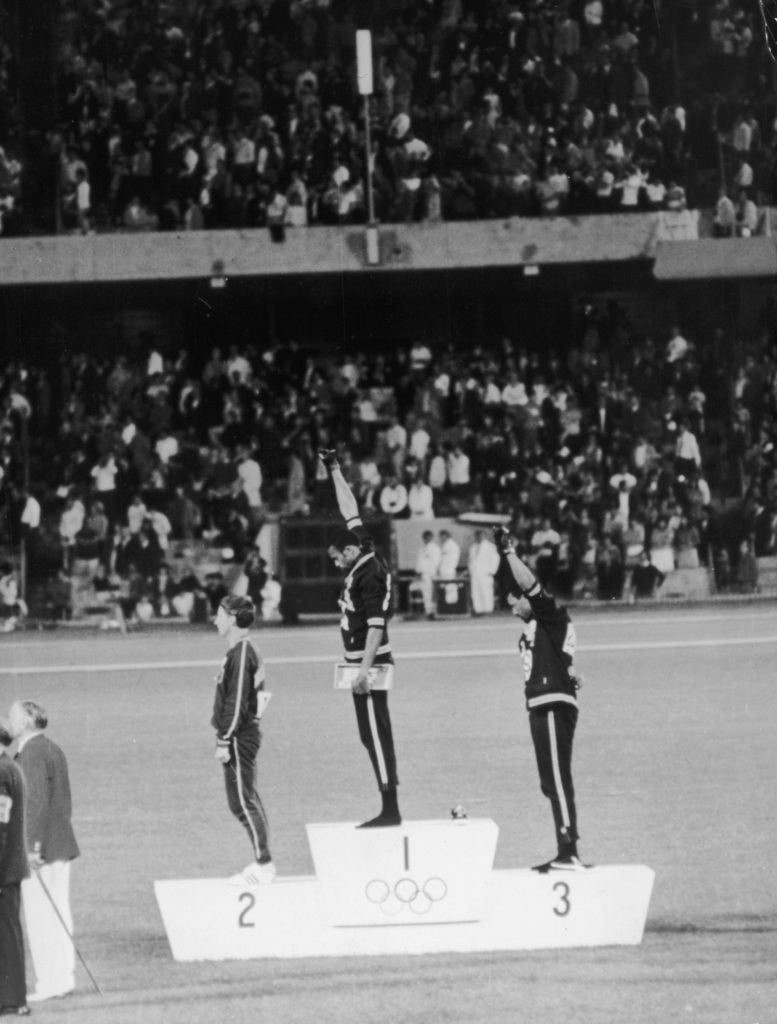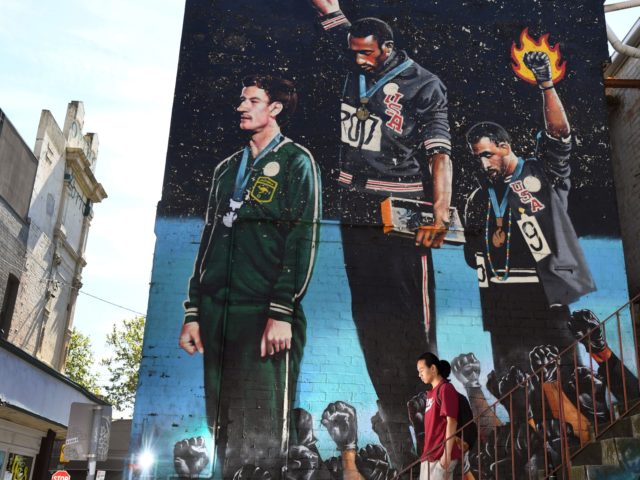A group of track and field athletes said Friday they had been oppressed and denied the “right” to open public dissent for too long, demanding the International Olympic Committee (IOC) annul a rule that bars political protests at the Olympic Games.
The Athletics Association, which formed Thursday, asked the IOC to revoke Rule 50 of the Olympic Charter, which stipulates that “no kind of demonstration or political, religious or racial propaganda is permitted in any Olympic sites, venues or other areas.”
The group says it’s a “unified and independent voice for elite track and field athletes around the world,” arguing the rule prevents athletes from exercising a basic human right to “peacefully protest against social injustices in the world.”
If successful, their call to address “social justice issues” could see competitors use the Olympic Games as a backdrop for a variety of causes, protests and political demands, in much the same way as the “take a knee” protests first spawned by Colin Kaepernick in the NFL back in 2016.
Kaepernick started kneeling during the national anthem in the preseason because he refused “to show pride in a flag for a country that oppresses black people and people of color.”
Now that protest has broadened into an international movement.
“For too long athletes have been powerless and without a real voice,” members of the association’s board, led by two-time Olympic gold medalist triple-jumper Christian Taylor, said in a statement.
The group cited perhaps the most famous protest in Olympic history — at the 1968 Summer Games in Mexico City when runners Tommie Smith and John Carlos raised gloved fists in a Black Power salute during the medal ceremony.

American track and field athletes Tommie Smith and John Carlos, first and third place winners in the 200 meter race, protest with the Black Power salute as they stand on the winner’s podium at the 1968 Summer Olympic games, Mexico City, Mexico. (Hulton Archive/Getty Images)
“[It’s been] 52 years and the systemic racism that Tommie Smith and John Carlos were protesting against is still destroying communities and lives all over the world,” the group said.
“And yet, athletes today have been warned that if they peacefully protest then they too will face sanctions and risk being disqualified or suspended.”
Carlos co-signed a letter sent last month to the IOC from members of the U.S. Olympic and Paralympic Committee (USOPC), similarly urging the end of Rule 50.
“We are now at a crossroads,” the letter said. “The IOC and IPC cannot continue on the path of punishing or removing athletes who speak up for what they believe in.”
The committee put hammer thrower Gwen Berry on probation after she raised her fist on the medal stand at the Pan-American Games last year.
Berry was an outspoken critic of the USOPC earlier this year when it made public shows of solidarity with protesting athletes, suggesting the USOPC never reached out to her on the issue.
The next summer Olympic Games are set down for Tokyo, Japan, in 12 months time.
Tokyo’s governor said the event – postponed due to the Chinese coronavirus pandemic – must go forward next year to symbolize world unity in overcoming the health crisis, Japan Today reported on Tuesday.
UPI contributed to this story

COMMENTS
Please let us know if you're having issues with commenting.